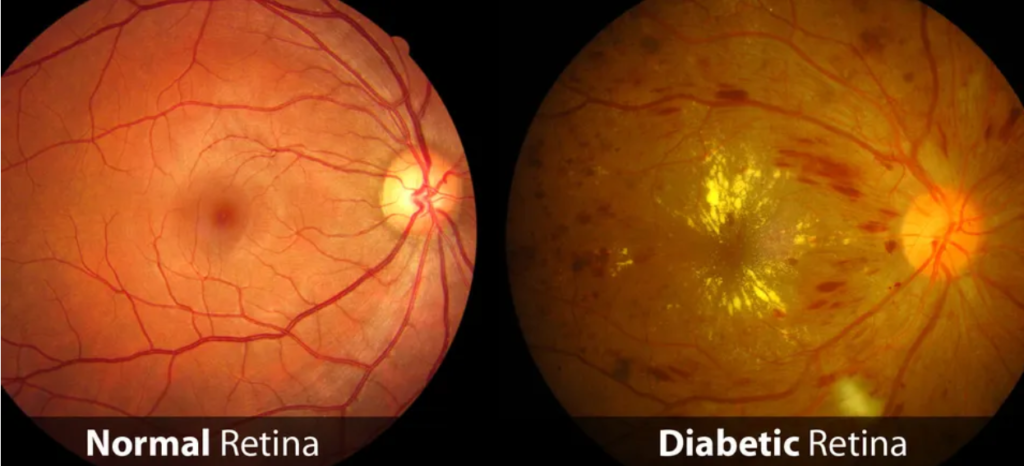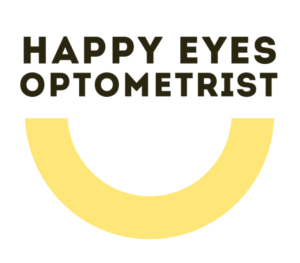Protecting your sight when living with diabetes
Diabetes can silently damage the small blood vessels inside the eye, leading to a condition called diabetic retinopathy. Because vision loss often occurs only after serious changes have already happened, regular eye examinations are vital to protect your sight.
At Happy Eyes Optometry (Surrey Hills), we perform a dilated fundus examination for every diabetic patient. This allows us to carefully inspect the back of the eye (retina and macula) for early changes—even before you notice any symptoms.
Why frequent eye tests are important
- Diabetic retinopathy is the leading cause of preventable blindness in working-age adults.
- Early stages are symptomless—you may not notice changes until significant damage has occurred.
- Regular eye exams are the only way to detect subtle retinal changes early.
- Treatment and monitoring can prevent or slow vision loss if detected on time.
What is diabetic retinopathy?
Diabetic retinopathy happens when high blood sugar damages the delicate blood vessels of the retina. Over time, this can lead to:
- Leaking blood vessels → causing swelling (macular oedema)
- Blocked vessels → starving the retina of oxygen
- New, abnormal vessel growth → which may bleed or scar, leading to vision loss
If untreated, diabetic retinopathy can progress to permanent blindness.

What to expect at your diabetic eye exam
- Comprehensive history – review of your diabetes, blood sugar control, and general health.
- Vision testing – check for clarity, distortion, or blurring.
- Dilated fundus examination – special drops enlarge your pupils so we can carefully inspect your retina and macula.
- Please note: you may not be able to drive for at least 1–2 hours after dilation. Bring sunglasses and arrange transport if needed.
- Retinal imaging – digital photos of the retina help us document and monitor changes over time.
- Clear explanation – we discuss results, treatment options, and coordinate with your GP or endocrinologist if required.
Who should have a diabetic eye test?
- Type 1 or Type 2 diabetes – all patients, regardless of age
- At least once every 12 months, or more often if recommended
- Sooner if you notice:
- Blurry or fluctuating vision
- Dark patches or floaters
- Difficulty seeing at night
- Sudden vision loss (urgent appointment required)
Managing diabetic eye health
Alongside regular eye exams, you can reduce risk by:
- Keeping blood sugar, blood pressure, and cholesterol within target ranges
- Not smoking
- Maintaining a healthy diet and active lifestyle
- Attending regular medical reviews
Don’t wait until symptoms appear
Vision loss from diabetic retinopathy can be permanent—but with early detection and management, it is often preventable.
